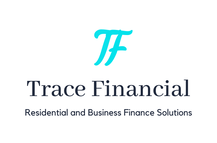Invoice Finance for Accounts Receivable
Looking for an effective way of unlocking cash that’s already been invoiced to your clients?
Sometimes called Invoice Finance, Debtor Finance or Accounts Receivable Finance, this is like a cash advance based on the sales you’ve already made to your customers, without having to wait for the traditional 30, 60 or even 90 day payment periods.
In simple terms, a lender considers the invoices or monies you have owing as an asset. They’ll lend you a percentage of the money that’s owed to you, then pay you the remaining balance once they’ve collected the invoice, less a small percentage.
As an example, the lender could pay you 80% of a single invoice or the total balance of your combined invoices. The remaining 20% is paid to you once your client has paid the invoice, less a percentage ‘factor fee’.
This type of financing is a relatively quick and flexible way for your business to maintain cash flow, and can have many benefits when compared to other bank loans or lines of credit.
These can include:
Debtor Finance, Invoice Finance and Accounts Receivable Finance. What’s the difference?
Essentially, they are all the same thing with one slight difference. Accounts Receivable Finance lends you money based on the total balance of all your invoices. Debtor or Invoice Finance is a loan based on one or several invoices.
In simple terms, a lender considers the invoices or monies you have owing as an asset. They’ll lend you a percentage of the money that’s owed to you, then pay you the remaining balance once they’ve collected the invoice, less a small percentage.
As an example, the lender could pay you 80% of a single invoice or the total balance of your combined invoices. The remaining 20% is paid to you once your client has paid the invoice, less a percentage ‘factor fee’.
This type of financing is a relatively quick and flexible way for your business to maintain cash flow, and can have many benefits when compared to other bank loans or lines of credit.
These can include:
- Gives you almost immediate access to funds once an invoice has been issued
- No other collateral or security is required
- There are no repayment schedules
- You don’t waste time chasing unpaid debts
- Helps you manage cash flow and plan for seasonal and day-to-day fluctuations
Debtor Finance, Invoice Finance and Accounts Receivable Finance. What’s the difference?
Essentially, they are all the same thing with one slight difference. Accounts Receivable Finance lends you money based on the total balance of all your invoices. Debtor or Invoice Finance is a loan based on one or several invoices.

